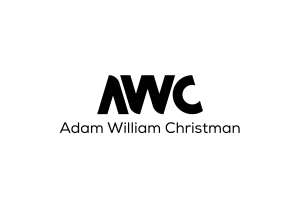This round of blogs is a series aimed at students who engage in academic writing. In all, the series will constitute a kind of primer on academic writing for students. Each post will tackle a problem I’ve seen in papers from my classmates, my students, and myself.
I could talk about this week’s subject for a while, but I’ll keep it to the same length as other posts in this series. Let’s talk about Wikipedia!
* * *
Wikipedia is the world’s largest and most-used online encyclopedia. Sounds good, right? It has articles on thousands and thousands of subjects, all with easy links to related articles. The articles almost always have a number of citations at the bottom, which point to scholarly discussions of the subject or news reports that review an aspect of it. The biggest problem with Wikipedia itself is considered by its administrators to be a feather in its cap. Wikipedia is open to editing by anyone.
On the one hand, this seems like a democratic ideal and a wonderful way to rely on the expertise of everyone. On the other hand, this, this, and this exist. (Which isn’t even to mention the worst practices regarding websites such as this, illustrated here.) Maybe Wikipedia isn’t so ideal…
I have two suggestions for how you can deal with Wikipedia as regards academic work.
The first is to treat it as a simple starting place. Any professor would recommend you start a research paper by reading related dictionary or encyclopedia articles on your topic. Wikipedia is just that kind of resource. It gives you a feel for “the lay of the land,” as regards your topic. It also usually points you to actually rigorous, academic work on the topic in its citation sections.
The second suggestion I have is “do not need cite it.” If you cite Wikipedia in your paper or bibliography, it shows you 1) don’t know how to write a paper, and 2) didn’t do any research beyond Wikipedia, which is a huge mistake. Instead of citing Wikipedia, track down the books and articles it cites. Read those, then include those items in your bibliography and paper if they are helpful and relevant. Do not, for any reason, cite Wikipedia in an academic paper.
As you get familiar with the resources that Wikipedia highlights, you should transition out from using Wikipedia for academic work at all. You will become familiar with the technical dictionaries and encyclopedias relevant to your discipline, which are far better suited for academic work.
While you should certainly talk to your local librarian about good resources for starting a paper, I can give you a couple of suggestions for now. If you are a seminary student, here are two items I have found useful, one dictionary and one encyclopedia.
Elwell, Walter A., ed. Evangelical Dictionary of Theology, 2nd ed. Grand Rapids: Baker, 2001. Library of Congress call number BR 95 .E87 2001 and available in the Reference section of the GGBTS library. An excellent tool for this kind of research, become familiar with it.
Orr, James, gen. ed. International Standard Bible Encyclopedia. 5 vols. Grand Rapids: Eerdmans (multiple revisions). LoC call number BS 440 .I6 and available in Reference at GGBTS. This resource is a bit dated (the original was published in 1915), but its articles are very dense with a lot of good material to chew on.
